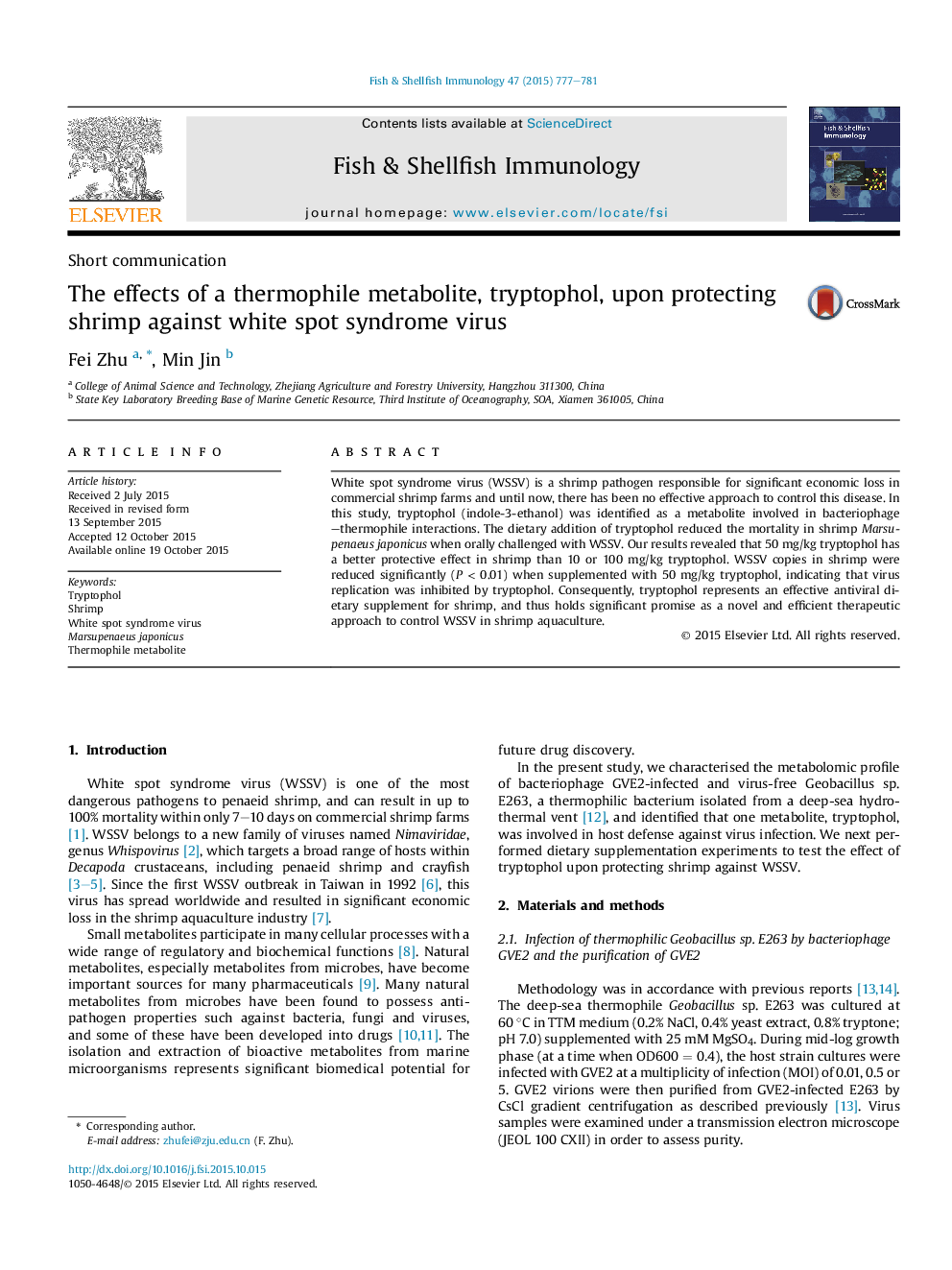| Article ID | Journal | Published Year | Pages | File Type |
|---|---|---|---|---|
| 2431032 | Fish & Shellfish Immunology | 2015 | 5 Pages |
•The tryptophol was identified as a metabolite which was involved in bacteriophage–thermophile interactions.•The dietary addition of tryptophol reduced the mortality of shrimp.•The WSSV copies in shrimp were significantly decreased when supplemented with the tryptophol.
White spot syndrome virus (WSSV) is a shrimp pathogen responsible for significant economic loss in commercial shrimp farms and until now, there has been no effective approach to control this disease. In this study, tryptophol (indole-3-ethanol) was identified as a metabolite involved in bacteriophage–thermophile interactions. The dietary addition of tryptophol reduced the mortality in shrimp Marsupenaeus japonicus when orally challenged with WSSV. Our results revealed that 50 mg/kg tryptophol has a better protective effect in shrimp than 10 or 100 mg/kg tryptophol. WSSV copies in shrimp were reduced significantly (P < 0.01) when supplemented with 50 mg/kg tryptophol, indicating that virus replication was inhibited by tryptophol. Consequently, tryptophol represents an effective antiviral dietary supplement for shrimp, and thus holds significant promise as a novel and efficient therapeutic approach to control WSSV in shrimp aquaculture.
Graphical abstractInhibition of WSSV replication in shrimp by dietary supplementation of 50 mg/kg tryptophol. WSSV copies in shrimp were reduced significantly (P < 0.01) when supplemented with 50 mg/kg tryptophol, indicating that virus replication was inhibited by tryptophol.Figure optionsDownload full-size imageDownload as PowerPoint slide
